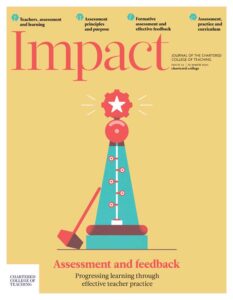Reconsidering the role of mock exams in schools
Written by: Nick Pointer

10 min read
Nick Pointer, Programmes Tutor, Ambition Institute, UK
The hegemony of assessment
For many years, schools have given a central role to summative-style assessments. The use of terminal exam questions to drive in-class learning and employing regular internal mock exams to generate grades and measure student progress have become unquestioned practices. This is demonstrated in recent national findings that the majority of teachers are asked to report graded 'data-drops’ every term or half-term, with fewer than five per cent of teachers reporting that they submit attainment data just twice a year (FFT, 2019).
One impact of this is on staff workload. Teachers overwhelmingly report that too much time is spent preparing, administering and marking tests, in addition to recording, analysing and monitoring the subsequent assessment data (DfE, 2019). A less tangible consequence is the opportunity cost for student learning: termly internal examination cycles can take up to nine weeks out of
Join us or sign in now to view the rest of this page
You're viewing this site as a guest, which only allows you to view a limited amount of content.
To view this page and get access to all our resources, join the Chartered College of Teaching (it's free for trainee teachers and half price for ECTs) or log in if you're already a member.
5
1
vote
Please Rate this content
Subscribe
Please login to comment
0 Comments
Oldest
Newest
Most Voted
Inline Feedbacks
View all comments










